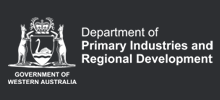
Fisheries Research Articles
Assessing the effectiveness of harvest tags in the management of a small-scale, iconic marine recreational fishery in Western Australia
Document Type
Article
Publication Date
7-18-2016
Journal Title
ICES Journal of Marine Science
ISSN
Print: 1054-3139 Electronic: 1095-9289
Keywords
compliance, illegal fishing, Pagrus auratus, shark bay, snapper, stock recovery, World Heritage
Disciplines
Aquaculture and Fisheries | Marine Biology
Abstract
Fisheries managers are increasingly required to develop regulatory frameworks to more effectively manage recreational catches in the marine environment. Although the limitations of conventional controls such as size and bag limits and restricted seasons are recognized, harvest tags that are commonly used to regulate hunting, are rarely applied in marine recreational fisheries. Following overfishing of snapper (Chrysophrys auratus) in Shark Bay, Western Australia, a broad range of management reforms were progressively introduced from 1998 onwards to limit recreational catches and assist stock recovery. Since 2003, these included a harvest tag system in Freycinet Estuary whereby a limited number of harvest tags were made available each year via a ballot. The effectiveness of harvest tags in terms of stock rebuilding and acceptance by recreational fishers was evaluated using: annual phone surveys of all harvest tag recipients between 2011 and 2013; analysis of compliance statistics collected between 2004 and 2015; and interviews with experienced compliance officers. The overall costs of administration and compliance were also assessed. The capacity of harvest tags to successfully constrain the total annual recreational catch contributed to the recovery of the snapper stock in Freycinet Estuary to management target levels within a 10–12 year timeframe. The majority of harvest tag recipients interviewed considered harvest tags were effective in the management of snapper; cost per tag was reasonable; and compliance in the fishery was high. High levels of compliance are essential if harvest tags are to provide a robust management tool to limit total catch and a useful reference frame for angler surveys. Harvest tags have considerable potential with other marine recreational fisheries where catch limits are required to rebuild and sustain valuable but vulnerable fish stocks.
Recommended Citation
Jackson, G,
Ryan, K L,
Green, T J,
Pollock, K H,
and
Lyle, J M.
(2016), Assessing the effectiveness of harvest tags in the management of a small-scale, iconic marine recreational fishery in Western Australia. ICES Journal of Marine Science, 73 (10), 2666-2676.
https://library.dpird.wa.gov.au/fr_fja/93

